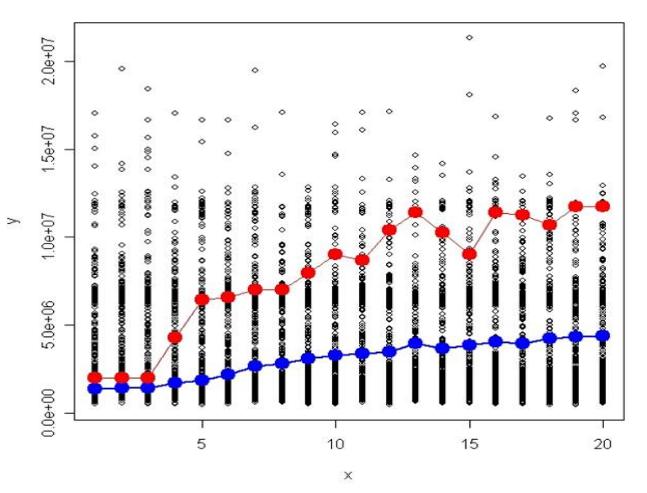Collaborating partners: IIASA, University of Zurich
Background
Early warning systems (EWS) for natural disasters such as landslides consist of different components including monitoring instruments, physical models, and decision making rules. EWS are rather complex systems, and it is quite difficult to quantify the impact of different factors on the overall system's performance.Data
We used a historical 6-hour rainfall data set from Colombia, which was utilized for a local disaster prevention project.Methods
The landslide occurrence is simulated based on the historical rainfall data and triggering thresholds. The early warning issuance is based on observed precipitation that includes modelled error in measurements.Results
The evaluation of the EWS against observed rainfall data containing up to 200% measurement error and computation of the probabilistic damage functions showed that small errors in measuring rainfall do not significantly affect the overall damage, but errors greater 50% have serious consequences.Status
The results were presented on the EGU conference, Vienna, 13-18 April, 2008. Manuscript is in preparation. Figure: Average damage and 95% quantile for 20 levels of the rainfall measurement error (starting from 10% to 200%).
Figure: Average damage and 95% quantile for 20 levels of the rainfall measurement error (starting from 10% to 200%).
